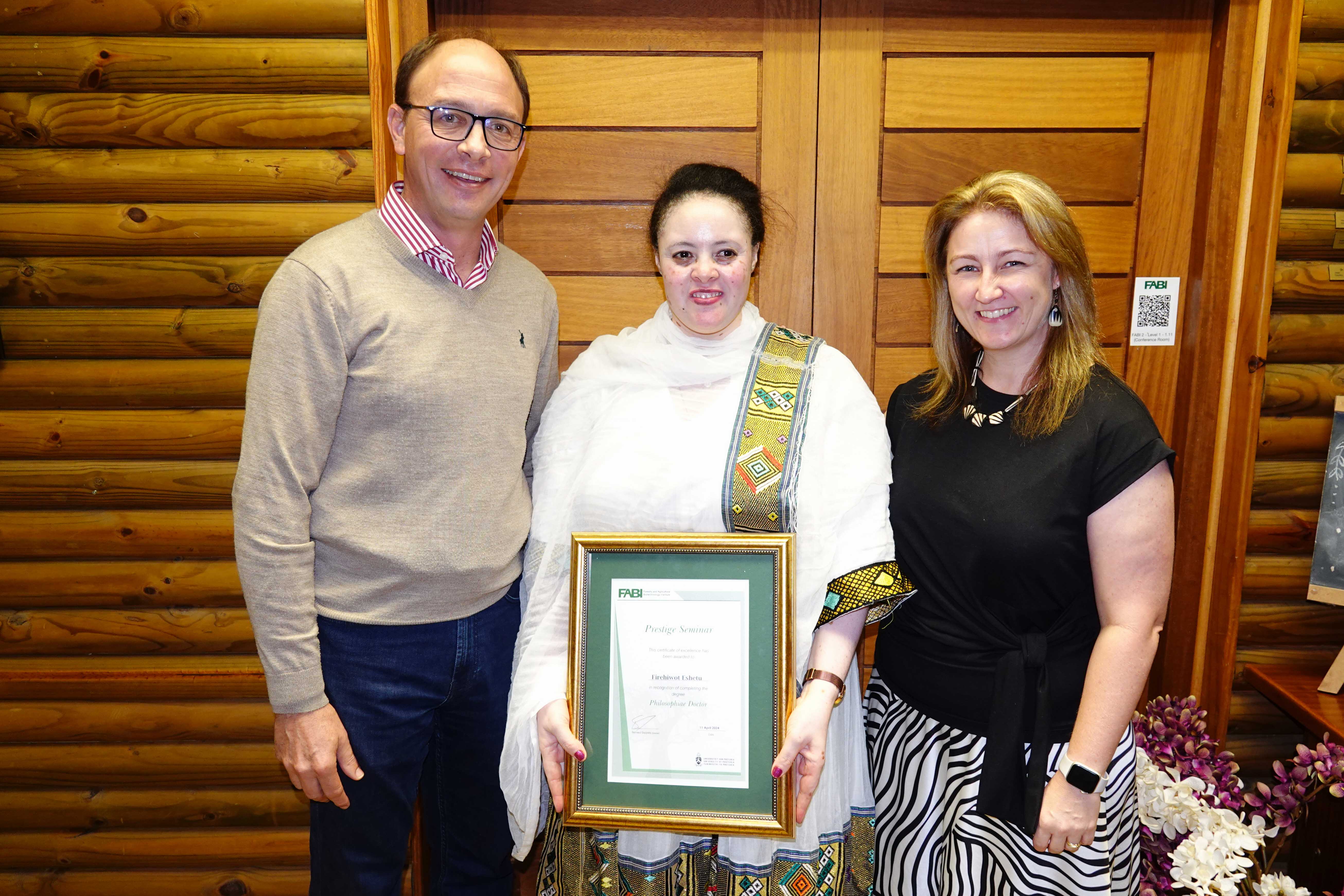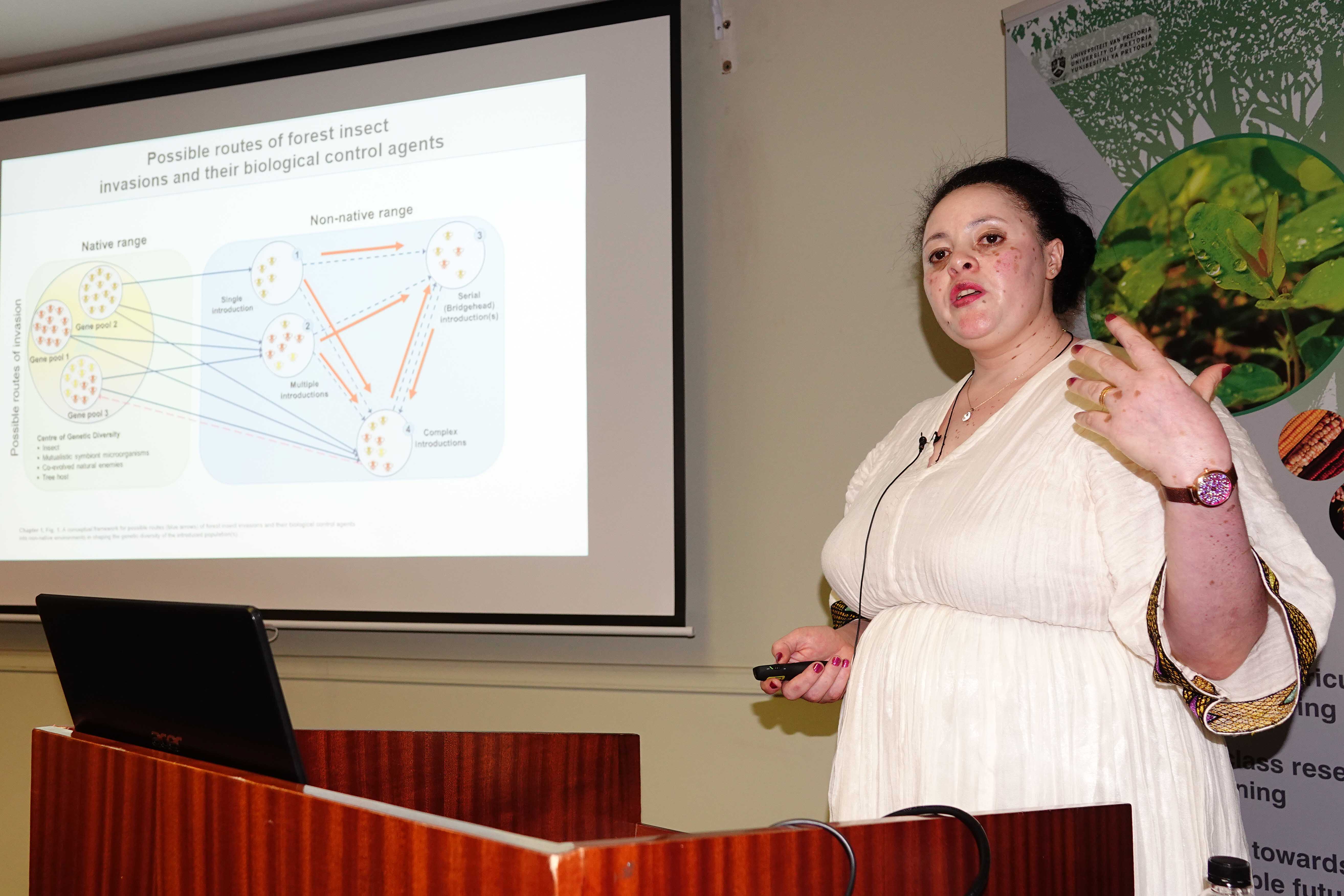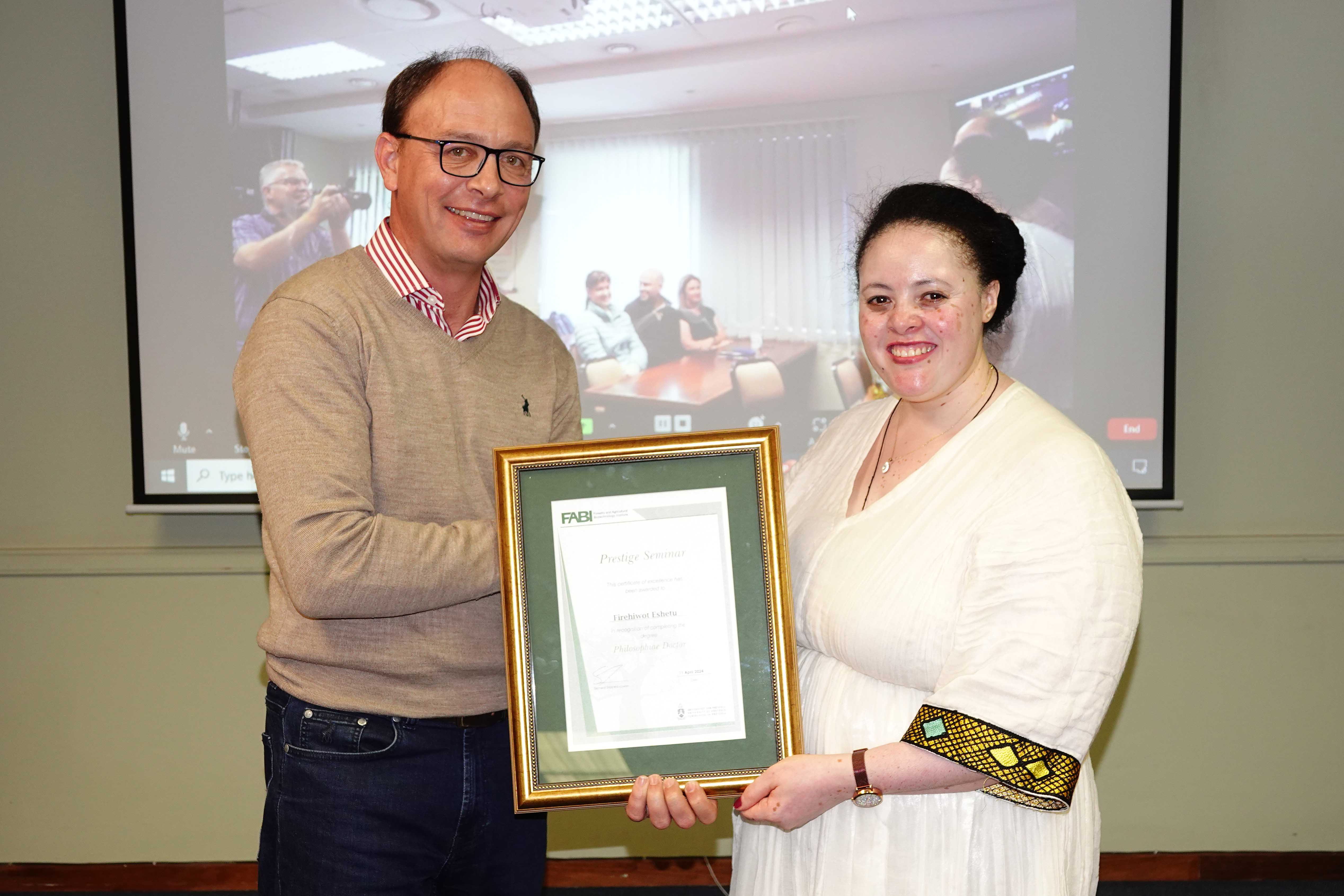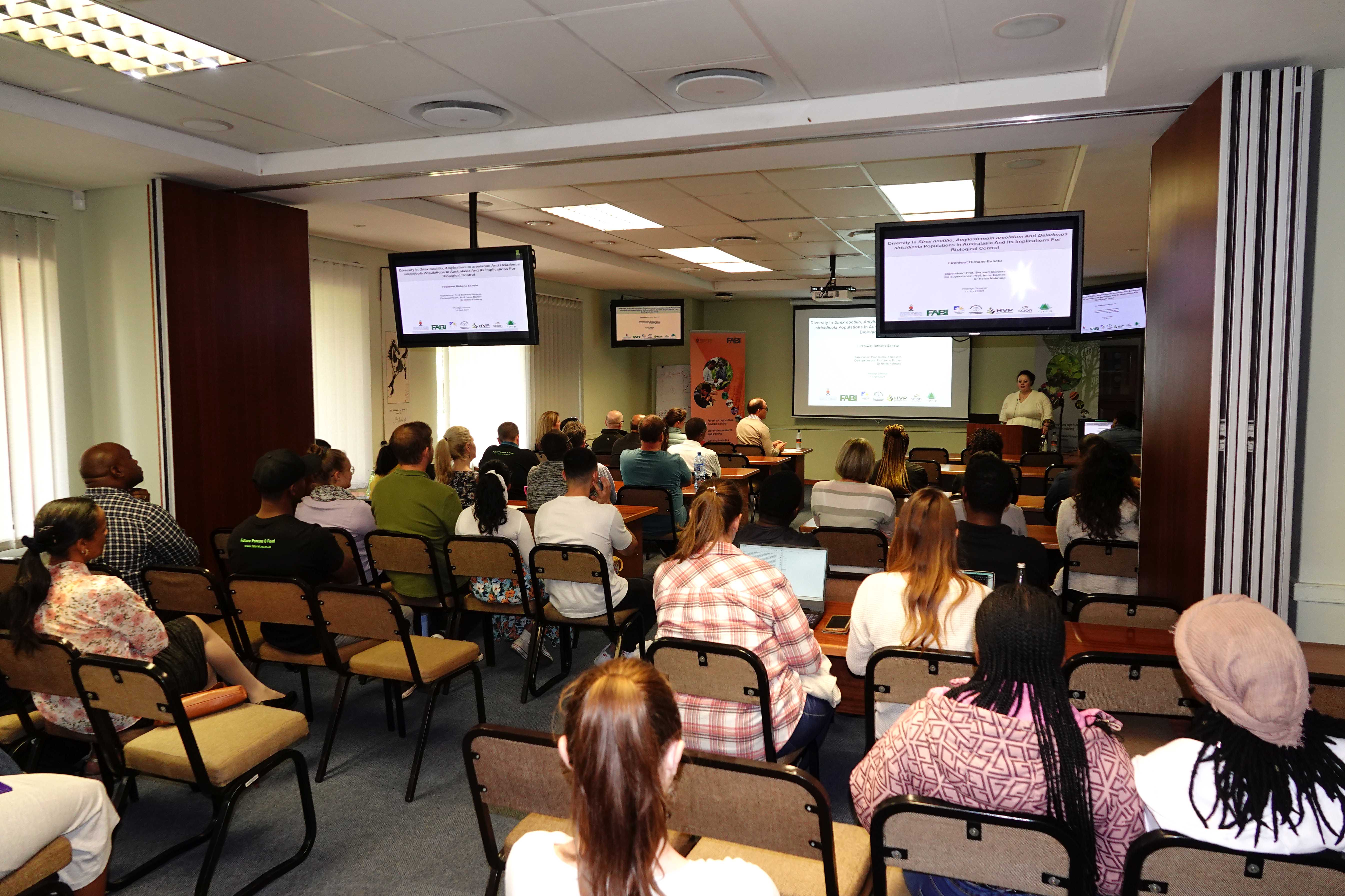Congratulations Firehiwot! 2024-04-22
FABI congratulates Firehiwot Eshetu on the successful completion of her PhD degree. She presented her Prestige Seminar “Diversity in Sirex noctilio, Amylostereum areolatum and Deladenus siricidicola populations in Australasia and its implications for biological control” in a fully-packed FABI auditorium on 11 April. Firehiwot’s supervisors for her PhD were FABI Director, Prof. Bernard Slippers, Prof. Irene Barnes, and Dr Helen Nahrung of Australia’s University of the Sunshine Coast. The external examiners for her thesis were Prof. Juan Corley (Centro Científico Tecnológico Conicet Comahue, Argentina), and Prof. Ann Hajek (Cornell University, USA), while Prof. Brett Hurley was the internal examiner.
Prof. Bernard Slippers praised Firehiwot for taking on this exciting and challenging project with collaborators in Australia and New Zealand and described her PhD as “a very special journey”. He pointed out that while she had made a big contribution to FABI, her project also holds significant implications not only for Australia’s Sirex biocontrol programme, but also globally.
The Sirex woodwasp, Sirex noctilio, and its symbiotic fungus Amylostereum areolatum have been a major threat to pine plantations since it spread to New Zealand in the early 1900s and Australia in 1952. It has also spread to South America, South Africa, the USA, Canada, and China. The biological control nematode Deladenus siricidicola has been used to manage the populations of this pest complex for over 60 years. Firehiwot’s PhD research examined levels of genetic diversity, population structure and the introduction history of the S. noctilio-A. areolatum-D. siricidicola populations in Australia and New Zealand, and compared them to global populations in native and introduced regions.
A significant discovery was the exceptionally high genetic diversity of D. siricidicola in these two countries, including a previously unknown fourth (lineage D) strain of the nematode. The diversity of the D. siricidicolapopulation in her thesis has significant implications for improving the management program that uses D. siricidicola to control S. noctilio's impact on Pinus plantations. These results also inform the management of S. noctilio in Australasia and beyond.
During her acknowledgments, Firehiwot highlighted the active involvement of the Australian National Sirex Coordination Committee (NSCC) which played a pivotal role in her PhD research and highlighted the importance of collaboration in addressing problems that are shared between different countries.





